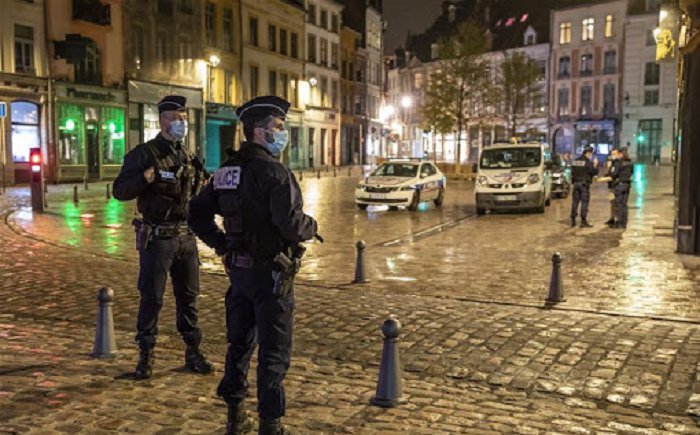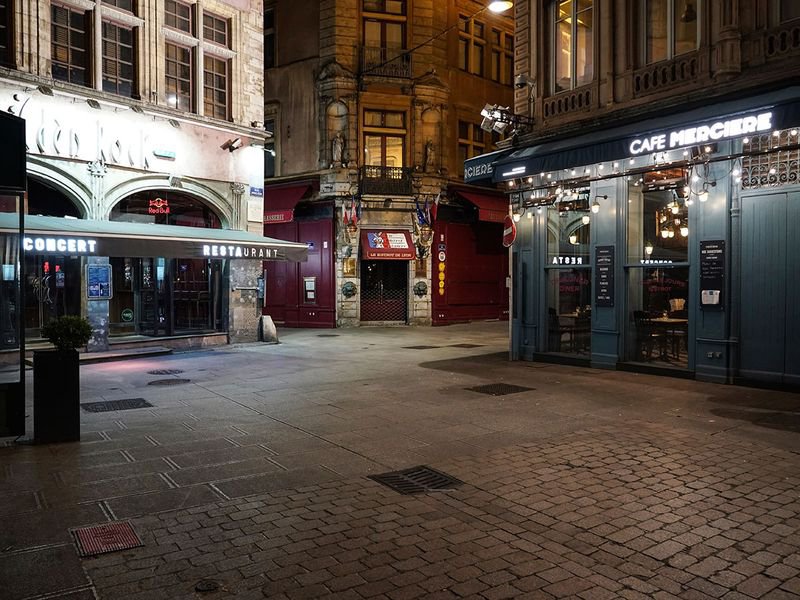Before India sees any sign of an end of the first wave of infections, France has already geared up to fight the second wave of Covid-19.
Saturday night was the first day of France’s government-imposed 9 p.m. curfew, which is scheduled to last at least four weeks.https://t.co/6BuQLXTl2o
— KTLA (@KTLA) October 18, 2020
President Emmanuel Macron has announced a curfew between 9 PM and 6 AM for nine cities in France to tackle the outbreak. These cities include Paris, Grenoble, Lille, Lyon, Aix-Marseille, St Etienne, Toulouse, Ile-de-France and Montpellier.
Nearly deserted streets are seen in cities across France Saturday night as millions face a curfew to slow the spread of Covid-19 pic.twitter.com/jtEb5dNpJ3
— AFP news agency (@AFP) October 17, 2020
Mr Jean Castex, the Prime Minister of France on Thursda said:
This means at 21:00 PM everyone must be at home and, without exception, every place, business or public service open to the public will be shut.
The French government on Wednesday declared a public health state of emergency in the entire country. They formally announced a medical emergency and the Government in an official statement said that the COVID-19 epidemic was a public health disaster which endangered the health of the population and justified the adoption of strict measures.

The curfew came into effect on Saturday and it’ll last for at least four weeks. Announcing the strict measure to contain the spread of deadly virus, the government also made it clear that those violating the rules of the curfew would face a fine of 135 euros.
Quiet streets, closed stores at night in Paris and eight other French cities as #France imposes curfew in response to signs of quick rebounding of #COVID19 cases pic.twitter.com/ozYoiJEieS
— China News 中国新闻网 (@Echinanews) October 18, 2020
Stressing on the emergency and cooperation needed from the citizens, Jean Castex warned that the country was witnessing “a strong second wave”, saying that “there can no longer be any relaxation” to contain the pandemic.

“Nothing is excluded,” he said, adding that further restrictions may be decided in the coming two weeks “if health indicators deteriorate a lot and resuscitation beds are occupied even more than expected”.

















